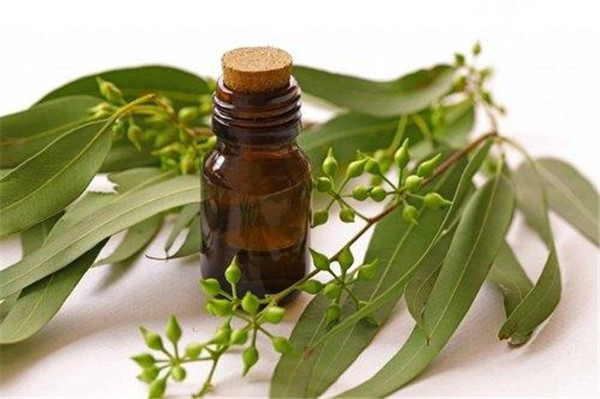Eucalyptus oil is a volatile oil obtained by steam distillation of Eucalyptus globulus of the Myrtaceae family, Cinnamomum camphora of the Lauraceae family, or other plants of the same genus of the above two families. Eucalyptus oil is a colorless or slightly yellow clear liquid with a unique aroma, slightly similar to camphor, spicy and cool in taste, and slightly darker in color after long storage; it is miscible with ethanol, chloroform, ether and oil, and is almost insoluble in water.

1. Uses of eucalyptus oil
According to the main uses of eucalyptus oil in commercial trade, it can be divided into three types: medical oil, spice oil and industrial oil, among which the most important is medical eucalyptus oil.
(I) Medical eucalyptus oil
The main component is 1.8-cineole or eucalyptol, which can be used for aromatic essences, as well as the preparation of essential oils and essences such as toothpaste, tooth powder, oral cleaners, and medicated soaps. It has antipyretic, anti-inflammatory, antibacterial, antiseptic, antiasthmatic and analgesic effects. Its tree species are mainly Eucalyptus globulus and Eucalyptus globulus, with an annual output of more than 2,000 tons, accounting for more than 70% of eucalyptus oil.
(II) Spice eucalyptus essential oil
The main component is citronellol, followed by galanthus, which is used in large quantities to produce various spices, essences, soaps, cosmetics and foods. This essential oil is mainly steamed from lemon eucalyptus, which contains a pleasant aroma.
(III) Industrial eucalyptus essential oil
The main components are piperitone and α-phellandrene. It is often used as a solvent, bactericide, mineral flotation agent and some chemical raw materials in industry. Eucalyptus oil is often used as a raw material because it contains low eucalyptol. After vacuum distillation, it is purified to a eucalyptol content of more than 70% for reuse. Eucalyptus oil is a natural detergent with good surface activity and bactericidal ability. It is an ideal emulsifier and bactericide.
2. Classification of eucalyptus oil
Eucalyptus oil can be mainly divided into two types: eucalyptol type eucalyptus oil and citronellal type eucalyptus oil.
(I) The typical representative of eucalyptol type eucalyptus oil is eucalyptus globulus oil
The main component of eucalyptus globulus oil is 1.8-cineole, a colorless to light yellow transparent liquid, with a relative density (20℃) of 0.909~0.919 and a refractive index (20℃) of 1.4590~1.4650. It has fresh, camphor, mint and medicinal olfactory properties. Eucalyptus can be used as a fragrance for indoor spraying, detergents, production of various cosmetics, cough suppressants, and palliative anesthetics. It is also used as a chemical intermediate in industrial synthesis.
(II) The typical representative of citronellal eucalyptus oil is lemon eucalyptus oil
Light yellow transparent liquid, relative density (20℃) 0.8592, refractive index (20℃) 1.4511~1.4681, of which the citronellal content is 68~85%. Because this oil has a refreshing and comfortable smell, it is widely used as a fragrance oil. Citronellal can be chemically modified to produce citronellal acetate, hydroxycitronellal, thymol, etc.

There are thousands of species of eucalyptus in the world, and among them, Eucalyptus microphylla, mainly distributed in Australia, is a dwarf eucalyptus variety. It grows in a very dry and nutrient-poor sandy land environment. Its noble quality is created in the harsh growth environment. Eucalyptus essential oil is rich in eucalyptol, and the concentration is usually above 80%.
The content of eucalyptol in different varieties of eucalyptus essential oil is different. The common blue eucalyptus essential oil on the market has a eucalyptol content of about 60%. Therefore, the characteristics of crude oil usually determine that it is difficult to meet the requirements of most pharmacopoeias, so it is generally reprocessed to increase its eucalyptol content. However, natural Eucalyptus microphylla essential oil does not require distillation, so the loss of other components is small, and its superiority is obvious.
Black Pepper Oil Extraction
Molecular Distillation Equipment Application
Oleoresins Introduction
Contact: Project Manager
Phone: +86-18120438367
Tel: +86-18120438367
Email: info@tycoretech.com
Add: No. 1, Optics Valley Avenue, East Lake New Technology Development Zone, Wuhan, Hubei, China
We chat
